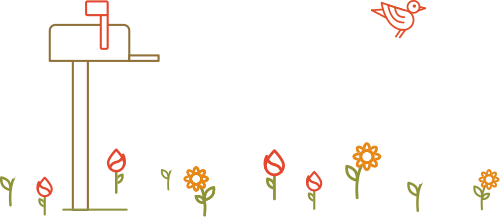
Photo by Crystl
No, I don’t eat bananas. Not really anyway.
It’s not that I don’t like the taste, I actually really enjoy them (particularly with ice cream). Nor do I actively avoid bananas—I’d eat homemade banana cream pie any day of the week, and in Thailand I noshed on the small red finger bananas sold at the local markets. But I don’t buy bananas in the US, and given a choice I’d almost always opt for something else.
While this probably sounds strange to some of you, if you stop and think about the way I live and shop it’s easy to see how this idiosyncratic habit evolved.
I do the majority of my grocery shopping (~80%) at the farmers market, and as you might expect bananas aren’t common in San Francisco. The one or two brick and mortar stores I shop at for the rest of my food here in the city are nothing like your typical supermarkets. Like the farmers market these stores carry local, seasonal food almost exclusively (did I mention I love San Francisco?), and if they carry bananas I’ve never noticed them.
So the main reason I don’t buy bananas is logistical: they don’t exist here.
Honestly for me that’s enough of a reason to focus on the rest of the produce the season has to offer—there’s always more beautiful fruit than I could possibly eat (even in the winter), why do I need bananas too? But when you pause and reflect on why this makes me strange, you start to realize that there are deeper issues with our most popular fruit that make them less than an ideal snack.
The vast majority of bananas sold in the US are grown in Latin Amercia by a handful of countries including Panama, Honduras and Costa Rica. In these places bananas are grown year round, are harvested while unripe, then shipped in special refrigerated compartments until they reach their destination weeks later. The fruit is then exposed to ethylene gas which causes it to ripen and turn their characteristic bright yellow (a different shade than their natural dull yellow when tree-ripened).
Though not genetically modified (yet), all commercial bananas are genetically identical clones grown in monocultures. While this makes the product extremely consistent, it also leaves it vulnerable to disease since cross-breeding cannot confer any protective benefit. Before 1960, the most prevalent commercial banana variety was ‘Gros Michel.’ However, these bananas were wiped out by the fungal Panama disease, forcing farmers to adopt a new variety.
Now all commercial bananas are the Cavendish variety, which was chosen for shelf life and shipping rather than flavor. Cavendish bananas are not immune to infection, however. An extremely virulent strain of Panama disease known as TR4 has threatened Cavendish bananas in Southeast Asia and Australia, and scientists believe TR4 will likely reach Latin American banana plantations soon. There is no variety currently considered a viable replacement for Cavendish, and bananas may be gone from supermarket shelves in our lifetimes. As I hinted above, companies are working to genetically modify the bananas to be resistant to TR4.
Even worse than monoculture ag destroying a commodity that millions of people depend on for their livelihoods, the large banana companies in Latin America (Dole and Chiquita) have a history of mind-boggling corruption. The term “banana republic” describes corrupt countries where the political system favors large agriculture corporations over public welfare. I had trouble finding information on the current state of the banana business and its politics, but there is little indication that things have improved.
But what about nutrition? Am I missing out? Bananas are famously high in potassium, but so are all the green leafy vegetables that make up a huge portion of my diet. Commercial bananas are indeed a good source of several nutrients, however they are also one of the most calorie dense fruits due to their high sugar content. There’s nothing in bananas that you can’t get from other foods, and lower calorie fruits may be a better choice if you eat them often or are watching your weight.
Despite these concerns, there are plenty of valid reasons to continue eating bananas. Just don’t let anyone call you crazy if you choose to skip them.
What are your thoughts on bananas? B-A-N-A-N-A-S!
Originally published August 1, 2011.





 Health
Health Habits
Habits Food
Food Weight
Weight 



 Better Than Butternut: Roasted Delicata Squash Recipe
Better Than Butternut: Roasted Delicata Squash Recipe 10 Simple Ways To Eat Less Without Noticing
10 Simple Ways To Eat Less Without Noticing Juicing: Stupid and Pretentious or Nourishing and Enlightening?
Juicing: Stupid and Pretentious or Nourishing and Enlightening? 10 Tasty Carbs That Won’t Make You Fat
10 Tasty Carbs That Won’t Make You Fat How To Start Working Out When You Don’t Like To Exercise
How To Start Working Out When You Don’t Like To Exercise
 Focus More on Your Brain and Less on Your Diet if You’re Serious About Losing Weight
Focus More on Your Brain and Less on Your Diet if You’re Serious About Losing Weight Home Court Habits: The Secret to Effortless Weight Control
Home Court Habits: The Secret to Effortless Weight Control 10 Reasons You Aren’t Losing Weight When You Think You’re Doing Everything Right
10 Reasons You Aren’t Losing Weight When You Think You’re Doing Everything Right How To Burn More Calories Without Breaking A Sweat
How To Burn More Calories Without Breaking A Sweat The 7 Habits of Highly Effective Foodists
The 7 Habits of Highly Effective Foodists










